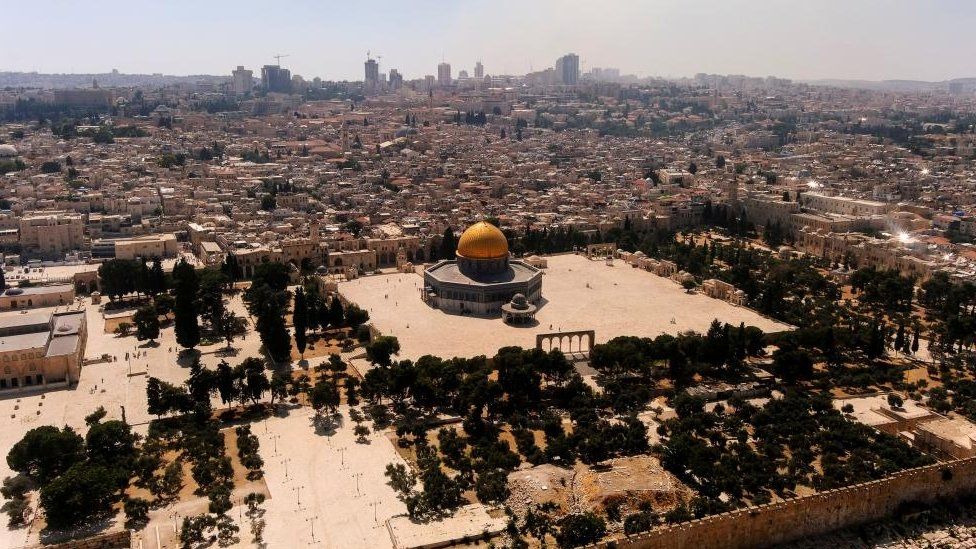Australia reverses decision to recognise West Jerusalem as Israeli capital
- Published

Australia has reversed a decision made four years ago to recognise West Jerusalem as the capital of Israel.
Foreign Minister Penny Wong said the 2018 move had undermined peace and "put Australia out of step with the majority of the international community".
She stressed that Australia remained a "steadfast friend" to Israel. Its embassy will stay in Tel Aviv.
Israel's government called the U-turn short-sighted and deeply disappointing, and summoned the Australian ambassador.
"In light of the way in which this decision was made in Australia, as a hasty response to an incorrect report in the media, we can only hope that the Australian government manages other matters more seriously and professionally," Israeli Prime Minister Yair Lapid said in a statement.
"Jerusalem is the eternal and united capital of Israel and nothing will ever change that."
But Palestinian Prime Minister Mohammed Shtayyeh welcomed the "wise and bold decision", which he said expressed "Australia's respect and alignment with the values of truth, justice and freedom, and the legitimate rights of the Palestinian people, sanctioned by international legitimacy".
The status of Jerusalem is one of the most sensitive issues at the heart of the Israeli-Palestinian conflict.
Then-US President Donald Trump drew international criticism in December 2017, when he reversed decades of American foreign policy by recognising the ancient city as Israel's capital. The US embassy was relocated from Tel Aviv to Jerusalem in May 2018.
Months later, Australia's then-Prime Minister Scott Morrison announced his government would follow suit.
At the time, Mr Morrison said Australia would recognise West Jerusalem immediately but not move its embassy from Tel Aviv until a peace settlement was achieved.
Mr Morrison's government lost power in an election in May this year.
On Tuesday, Foreign Minister Penny Wong called the former government's decision a "cynical play" to win over Jewish voters ahead of an election in Australia.
"I regret that Mr Morrison's decision to play politics resulted in Australia's shifting position, and the distress these shifts have caused to many people in the Australian community who care deeply about this issue," she said.
She reaffirmed the country's "previous and longstanding" position that the status of Jerusalem should be resolved as part of peace negotiations between Israel and the Palestinian people.
The UK is currently considering moving its embassy to Jerusalem. Honduras, Guatemala and Kosovo are the only countries other than the US with embassies in the city.
While Israel regards Jerusalem as its "eternal and undivided" capital, the Palestinians claim East Jerusalem - which Israel occupied in the 1967 Middle East war and effectively annexed in 1980 - as the capital of a future state.
Israeli sovereignty over Jerusalem has never been recognised internationally, and according to the 1993 Israel-Palestinian peace accords, the final status of Jerusalem is meant to be discussed in the latter stages of peace talks.
You may also be interested in:
Why the ancient city of Jerusalem is so important
- Published5 April
- Published15 May 2018
- Published13 May 2021